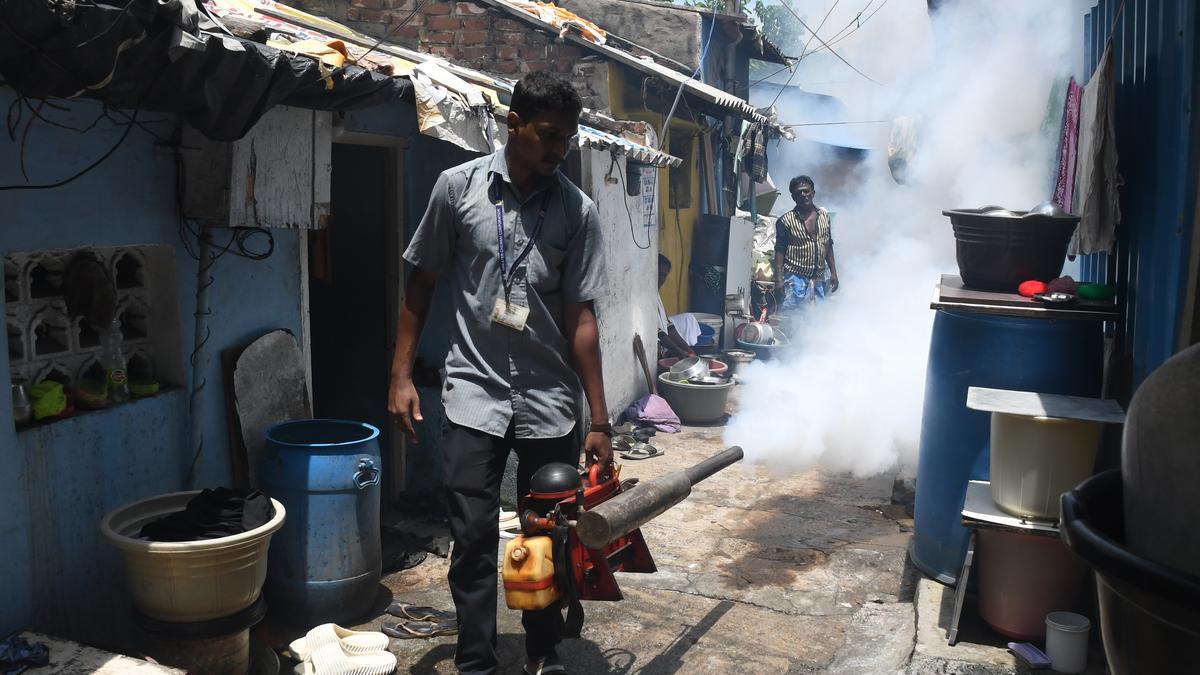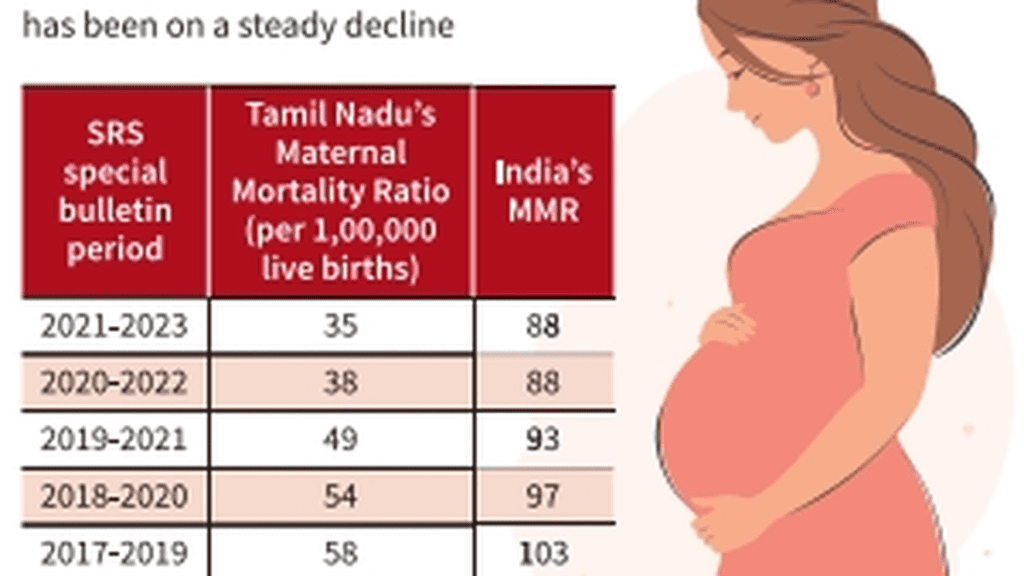In T.N., where dengue cases hit 26,000 this year, tracking every case, forecasting outbreaks is helping prevent deaths Premium

In T.N., where dengue cases hit 26,000 this year, tracking every case, forecasting outbreaks is helping prevent deaths Premium
In 2024, over 26,000 cases of dengue were recorded in Tamil Nadu. Public health officials attribute this rise to improved surveillance, increased testing, and the bringing in of more private hospitals under a daily reporting system, thereby ensuring that all cases were counted.
As of December 26, Tamil Nadu has recorded 26,740 cases of dengue and 13 deaths according to data from the Directorate of Public Health (DPH) and Preventive Medicine. A closer look at the year-wise dengue infection trends in the State showed that this was the highest number of cases to be registered since 2012. The last time the State recorded over 20,000 cases was in 2017, when there were 23,294 cases. However, unlike in 2017 when 65 deaths had occurred, the number of deaths has remained low in 2024.
In fact, public health officials, who took up a retrospective study of dengue cases in T.N. from 2012 to 2023 and published their findings in an article, ‘Prevention and control strategies to counter the dengue cyclical trend in Tamil Nadu’, in the Tamil Nadu Journal of Public Health and Medical Research earlier this year, noted that dengue cases were identified throughout the year with an increase in incidence during monsoon. Since 2012, there were two peaks: one in 2012 itself (13,204 cases and 66 deaths) and the other in 2017.
“This year, we focussed on improving surveillance for dengue. We ensured that more reporting units were brought under the system. We brought in compulsory reporting of cases on a daily basis, and included private hospitals as well. The idea was to pick up cases as early as possible to prevent deaths. So, while the initial rise in cases was manageable, we stepped up surveillance to ensure that no case went unreported. This way, we did not miss out on cases,” said T. S. Selvavinayagam, Director of Public Health and Preventive Medicine.
Increased surveillance helped in preventing deaths due to dengue, he said, adding: “Now, we are seeing dengue cases throughout the year. We observed that there was no cluster of cases this year. Cases were reported randomly from across the State.”
Ensuring that private hospitals reported cases on a daily basis helped surveillance to a large extent. “The number of tests performed also increased. So, the dengue positivity also increased. The aim was to prevent deaths,” a health officer said.
With disease surveillance stepped out, the directorate’s entomological surveillance has helped in preventing or forecasting outbreaks. The study noted that the team of entomologists periodically collected samples of mosquito and larva from the field and tested for the presence of dengue virus in the Aedes mosquito by RT-PCR at T.N.’s apex laboratories, the State Public Health Laboratory, Chennai and the Institute of Vector Control and Zoonoses, Hosur. When samples were found positive for dengue virus, field-level activities to reduce vector density are initiated. This, in fact, turned into a public health tool to forecast outbreaks.
E. Theranirajan, dean, Rajiv Gandhi Government General Hospital, said that there was no surge in mild and moderate cases of dengue, while a number of severe dengue cases was managed well at the hospital. “We received a few patients who were critically ill including pregnant women with dengue, who were were managed well,” he said.










